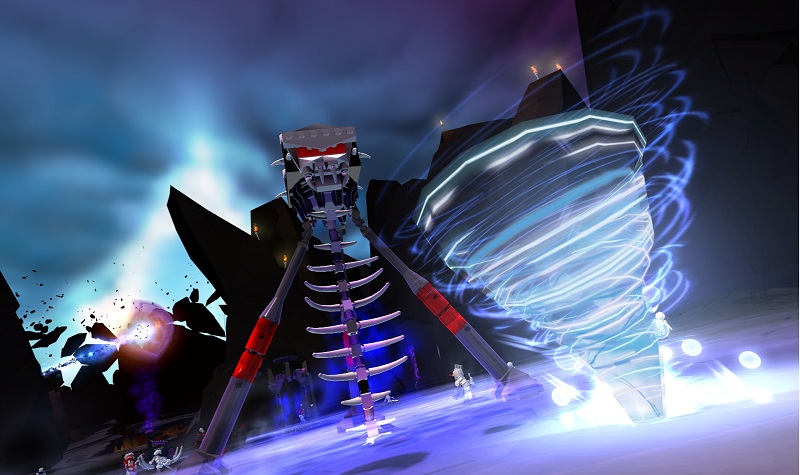Like most other weeks, the one just ended saw a fair number of things come across my desktop that got me thinking, wondering and speculating. In a different setting - like over a cold beverage or three with people in the industry who know me well enough to speak freely - I could spend hours talking about them all. Indeed, the opportunity to do so may be what I miss most now that I'm no longer a regular attendee at events like the recent GDC. For this column however, since I have to be selective in the interests of readability, I've chosen to comment on just these items:
New CEOs for Cryptic and Gazillion
Last Wednesday, parent Atari announced the appointment of Jack Emmert to head up Cryptic, taking over the reins from John Needham who left to "pursue other opportunities within the games industry." A couple of days later, it turned out that he has joined Gazillion as its CEO. The timing of this news leads me to suspect he was hired away. It also seems reasonable that going to a company with four studios would represent a step up the corporate ladder, like when he moved to Cryptic from SOE, where he had been a senior VP.
As for Emmert, he was the COO, so I assume he was already familiar with and actively involved in both the creative and business sides of the studio. That said, I tend to associate him with the former. If memory serves me, he was previously the CCO until Bill Roper came aboard and assumed that job. In any case, I'm curious to see if, as the new CEO, he will do anything to stamp his personality into that role.
Emmert has, of course, already made his mark. As I recall, when we first met almost a decade ago, he was the lead writer on City of Heroes, which was still looking for a publisher. In that position and subsequently as lead designer, he was clearly a major driver of that title's style of play and how it turned out in general.
Fast-forwarding a few years, I believe he was the person most responsible for Champions Online. As I understand it, he had been a keen fan of the underlying intellectual property for quite some time. It's hard to imagine this didn't factor strongly into Cryptic acquiring rather than licensing it. How successful the game has been and what its long-term prospects are following its shift to Free For All are still open to question. However, I don't know whether it would exist at all had it not been for Emmert.
Shifting back to Needham, I regard him as a business-side guy, and thus don't associate him with any games in the same way. That said, in light of his experience with the shift of Champions' business model, he might be a nice fit with Gazillion, which, although its NetDevil division developed Lego Universe, describes itself as a "developer and publisher of free-to-play online games".
I also thought his quote in the press release announcing his appointment was rather interesting. "Like the team here, I believe that in the near future, rich console-quality games will be delivered through the browser.... we’re going to create browser-centric, free-to-play games..." Given that Gazillion is working on two projects based on the high-profile Marvel IP, I noted in particular that the browser references appear to dovetail with my feelings that this is a major current directional trend for the MMOG industry.
In addition, there have been a few reports - still unconfirmed as far as I actually know - that Needham said the company is converting all its in-development projects to free to play. If this is accurate, it would mean some were originally going to use another revenue model. While I'm not right up to date on what's happening with Jumpgate Evolution, it comes to mind first since I was still under the impression it was to be subscription.
Lego Universe changing business models
Rather coincidentally, a rumor passed my way last week to the effect that Lego Universe may be shifting to some form of free to play or freemium. To be clear, I wasn't told anything that leads me to assign this any real credibility; at this point, it's complete speculation.
What piqued my curiosity is that back when I first learned about the game's existence, I wondered if there might be an argument for selling it like the blocks themselves; i.e. in many different permutations and combinations so as to allow each consumer to purchase what he or she wants. In particular, it seemed to me that this would fit right in with the building element in the play.
Indeed, I still have this same general impression. Of course, I felt then and continue to think now that there would have to be reasonable safeguards in place to prevent occurrences of uncontrolled spending by kids like the ones I mentioned recently. With that caveat, the idea of adopting a different business model makes enough intuitive sense to cause me to wonder why it wouldn't at least be worth consideration, especially since the games that have switched seem to have done so successfully and profitably.





